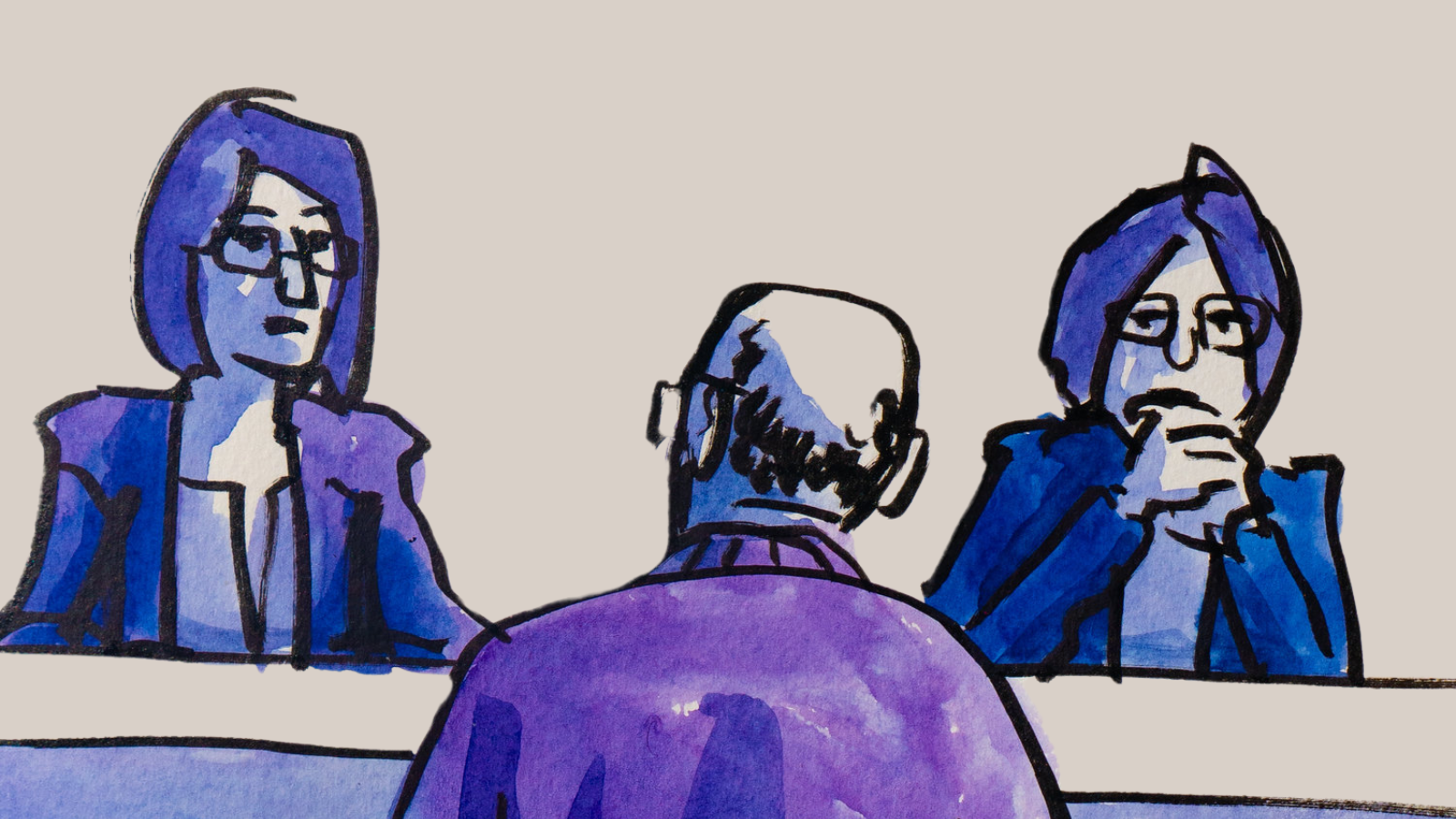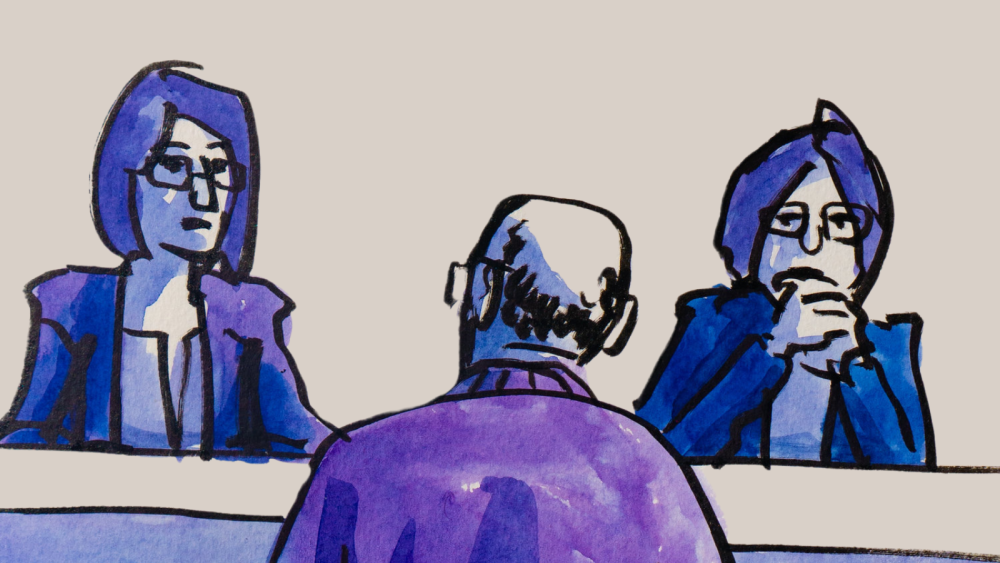Joint statement: Preliminary findings in the appeal trial of Homayoun Sabetara
On 24 and 25 September 2024, the appeal trial of Homayoun Sabetara took place at the Appeal Court of Thessaloniki, Greece. Aegean Migrant Solidarity (AMS), the Border Violence Monitoring Network (BVMN), the European Lawyers for Democracy and Human Rights (ELDH), borderline-europe e.V., the Legal Centre Lesvos (LCL), and the Feminist Autonomous Centre for research (FAC) observed the proceedings.
Homayoun Sabetara, an Iranian asylum seeker, was arrested in Thessaloniki in August 2021 on facilitation of entry (smuggling) and life endangerment charges. After flying from Iran to Istanbul, he travelled to Greece, aiming to reach Germany to reunite with his children, who reside there. After spending 4 days without food or water in the Evros region, he was arrested in Thessaloniki for driving a vehicle with 7 passengers.
The defence lawyers argued for Mr. Sabetara’s innocence, referring to Mr. Sabetara´s intention to apply for asylum and therefore his exemption from the penalising conditions of Art. 30 par. 1 Law 4251/2014 as recognised by paragraph 6 of the same article.
Furthermore, the defence lawyers argued that one of the two witness statements, which constituted the key prosecution testimony on which the entire case was based, should not be read in, and considered by the court. This is due to the fact that this witness, a passenger in the car, had not been located by the prosecution and could therefore not be cross-examined during the trial by the defence. Additionally, the witness’s testimony had not been taken with proper interpretation on the day of the arrest; instead, the interpretation was performed by one of the police officers in charge, in a language that was not the witness’s primary language, further undermining its reliability. The decision of the Court to reject the defence’s objection, to the use of the absent witness’s testimony, raises serious concerns about the fairness of the proceedings.
Lastly, the defence argued that the charges of facilitating irregular entry were inapplicable to Homayoun Sabetara’s situation, as he and the others whose mobility he allegedly facilitated by driving a car had already crossed into and had been on Greek territory for several days, and that, if any, the charges should be of facilitation of stay. This would entail a change in the charges from law 4251/2014 Article 30 to Article 29.
Following his arrest, Mr. Sabetara was held for almost a year in pretrial detention, despite not posing any threat to anyone and having fully cooperated with the authorities, as attested by the police officer who testified in the trial. On 26 September 2022, the first instance court had sentenced him to 18 years in prison.
The Appeal trial of Mr. Sabetara has been marked by significant delays, following a five-month postponement of his Appeal Court hearing on 23 April 2024. On 24 September 2024, the case was listed 22nd out of 25, resulting in yet another postponement to the following day.
The court justified the postponement by stating that no registered court interpreter was present on 24 September 2024. The absence of a registered interpreter, combined with the refusal of the Court to accept a defence-appointed interpreter despite the urgency of the circumstances, breaches Mr. Sabetara´s right to interpretation and the right to receive a decision in due time under both Greek Criminal Procedures Code and the European Convention on Human Rights (ECHR). Since his conviction by the Court of First Instance, Mr. Sabetara had spent 730 days in prison. Ethese cumulated delays therefore violate the principle to hold the hearings within a reasonable time.
During both days of the Appeal trial, many supporters joined the campaign to express solidarity to Mr. Sabetara. Police presence both inside the Courtroom and outside was excessive and the hostile atmosphere was noticed with concern, especially when comparing it with the previous hearing in April 2024.
Mr. Sabetara was declared guilty, and his sentence was reduced to 7 years due to the aggravating circumstances -namely the profit motive encoded in law 4251/2014 Article 30(b)- being dismissed, as well as the consideration of time served and mitigating circumstances, allowing him to apply for his early release on parole soon. The outcome of the decision however, can’t be separated from the fair trial violations mentioned above and which will be detailed in a full report published by the trial observers in the following weeks. A preliminary report can be found here.
More info:
- borderline-europe (2024): Appeal Trial Postponed: Homayoun Sabetara's Case Highlights Systemic Injustice Faced by Migrants Accused of Smuggling
- borderline-europe (2022): Greece: Father sentenced to 18 years in prison for driving car with refugees
- borderline-europe (2022): Greece: Because a 58-year-old father wanted to join his daughters in Berlin, he now faces 100 years in prison
Background info:
- borderline-europe (2023): Study: A legal vacuum - the systematic criminalisation of migrants for driving a boat or car to Greece


